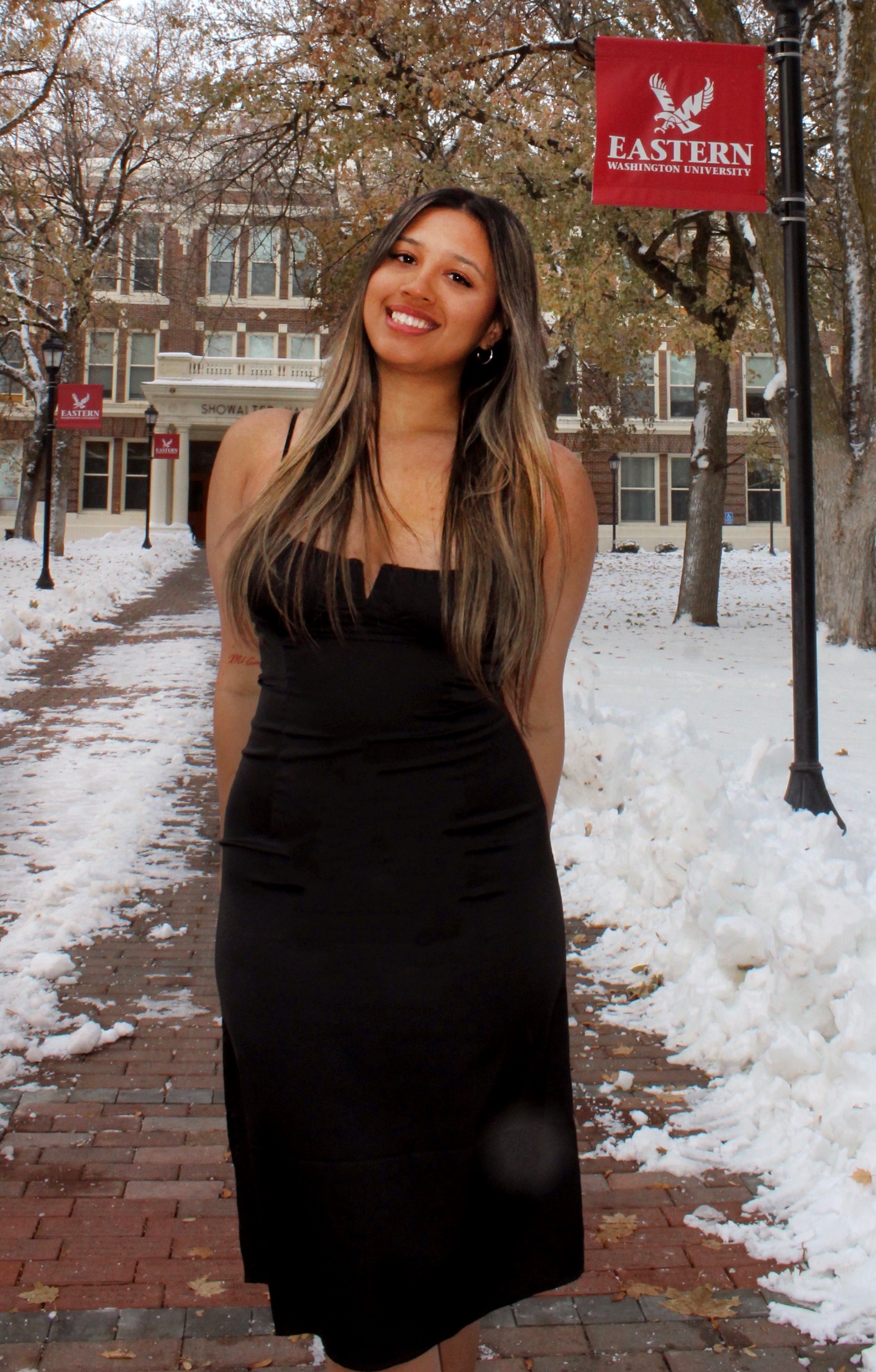Mai Peregrina

Mai Peregrina is majoring in Psychology at Eastern Washington University. She is a member of the Alpha Phi sorority and is the President of the Panhellenic Council here at EWU. For her upcoming McNair Research Project she will be working with Dr. Islam-Zwart as her mentor. Mai plans to research how students from her institution (EWU) will judge a criminal knowing that they have psychological issues. Mai is interested in the field of Forensic Psychology. After graduation, she plans to pursue her academic goals with earning a Ph.D. and is looking forward to applying to programs. She sees herself in the future working in court systems to evaluate whether mentally ill offenders should be treated institutionally or incarcerated.
2023 EWU Faculty Research Mentor: Dr. Ryan Parrey
Research Title: Atmospheres of Ableism: A Phenomenological Exploration of Everyday Encounters
Abstract:
Campbell and Nario-Redmond explain that ableism entails explicit and implicit biases that manifest at every level of social life. At the same time, Taussig describes ableism as “the atmosphere we breathe.” Disability Studies scholarship has done much to identify how ableism operates in the everyday lives of disabled and nondisabled people alike; however, little work has been done to articulate it in terms of the atmospheric quality that Taussig discusses.
Building on Taussig’s assessment of ableism in conjunction with Casey’s similar articulation of the atmosphere of emotion, this paper addresses the findings of an online qualitative survey distributed to adults with physical disabilities. Participants answered a series of open-ended questions designed to identify not only the types of ableist encounters experienced in everyday life, but also the emotions that these encounters generate. The research employs a phenomenological lens in order to provide a more nuanced and in-depth description of ableism as a part of disabled people’s everyday lived experience. In doing so, this research contributes to the study of ableism and particularly how it operates within ongoing rhetoric and practices of inclusion, access, and support.

EWU McNair Scholar Mai Peregrina Honored with EWU Board of Trustees Scholarship


